Uncategorized
-
 Science & Society
Science & SocietyThe economics of climate change and tech innovation win U.S. pair a Nobel
Climate change and tech innovations inspired the new Nobel Memorial Prize winners in Economic Sciences.
By Bruce Bower -
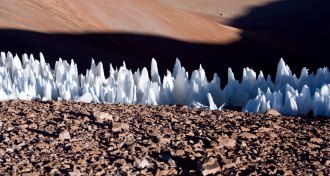 Planetary Science
Planetary ScienceSpiky ice spires may stud the equator of Jupiter’s moon Europa
Fields of jagged ice spires, if they exist, could affect where future spacecraft land on the Jovian moon.
-
 Climate
ClimateLimiting global warming to 1.5 degrees versus 2 has big benefits, the IPCC says
A new report from the Intergovernmental Panel on Climate Change compares the impact of warming targets on extreme weather, sea level rise and habitat loss.
-
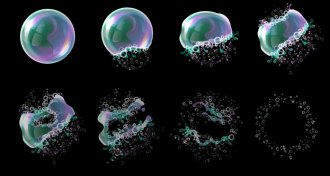 Cosmology
CosmologyThe universe’s continued existence implies extra dimensions are tiny
The strictest limits yet on the size of extra dimensions come from the fact that black holes haven't destroyed the universe.
-
 Astronomy
Astronomy‘Einstein’s Shadow’ explores what it takes to snap a black hole’s picture
The new book offers a behind-the-scenes look at the Event Horizon Telescope’s attempt to image a black hole.
-
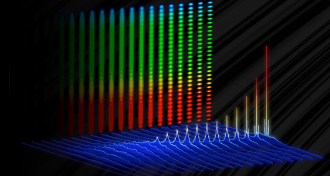 Physics
PhysicsA new ultrafast laser emits pulses of light 30 billion times a second
A new technique allows lasers to pulsate at a higher rate than ever before.
-
 Health & Medicine
Health & MedicineCity size and structure may influence influenza epidemics
The size and structure of cities helps shape the progression of new influenza cases during a flu season, a new study finds.
-
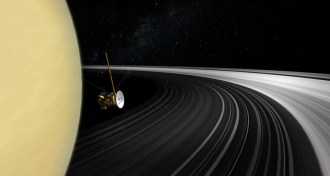 Planetary Science
Planetary ScienceSaturn’s ‘ring rain’ is a surprising cocktail of chemicals
NASA’s Cassini probe got a closeup view of the material falling from Saturn’s rings into the planet. The data could help illuminate the belts’ origins.
-
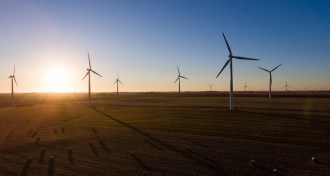 Climate
ClimateHow wind power could contribute to a warming climate
If the United States had enough wind turbines to generate all of its power, they would warm the country by 0.24 degrees Celsius on average.
-
 Chemistry
ChemistrySpeeding up evolution to create useful proteins wins the chemistry Nobel
The three winners, which include the fifth woman to win the chemistry prize, pioneered techniques used to fashion customized proteins for new biofuels and drugs.
By Laurel Hamers and Maria Temming -
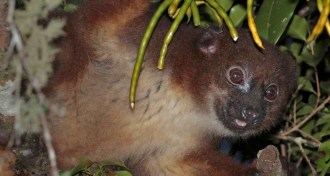 Life
LifeLemur study suggests why some fruits smell so fruity
A new test with lemurs and birds suggests there’s more to fruit odors than simple ripening.
By Susan Milius -
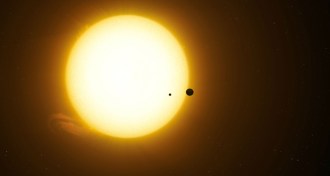 Astronomy
AstronomyHubble may have spotted the first known exomoon
A single sighting with the Hubble Space Telescope seems to confirm that there’s a Neptune-sized moon orbiting exoplanet Kepler 1625b.